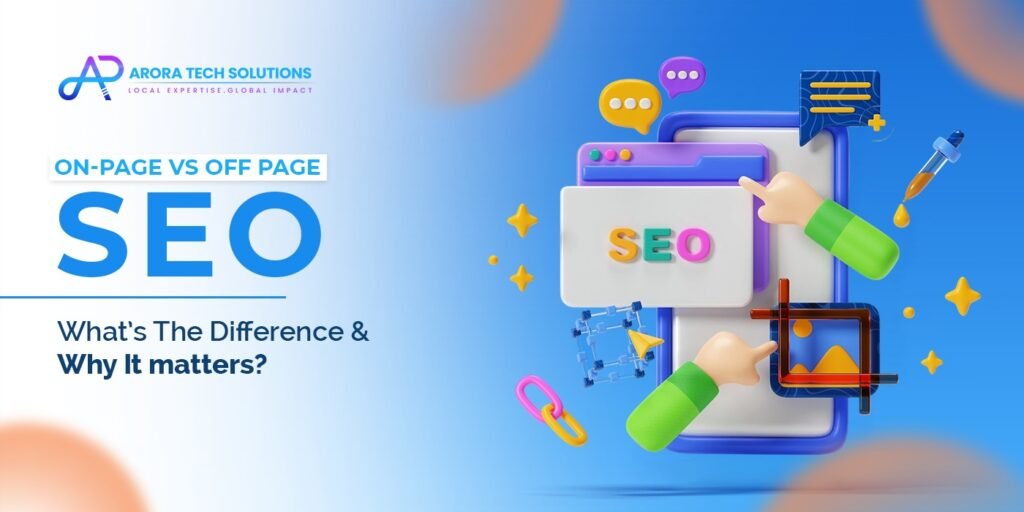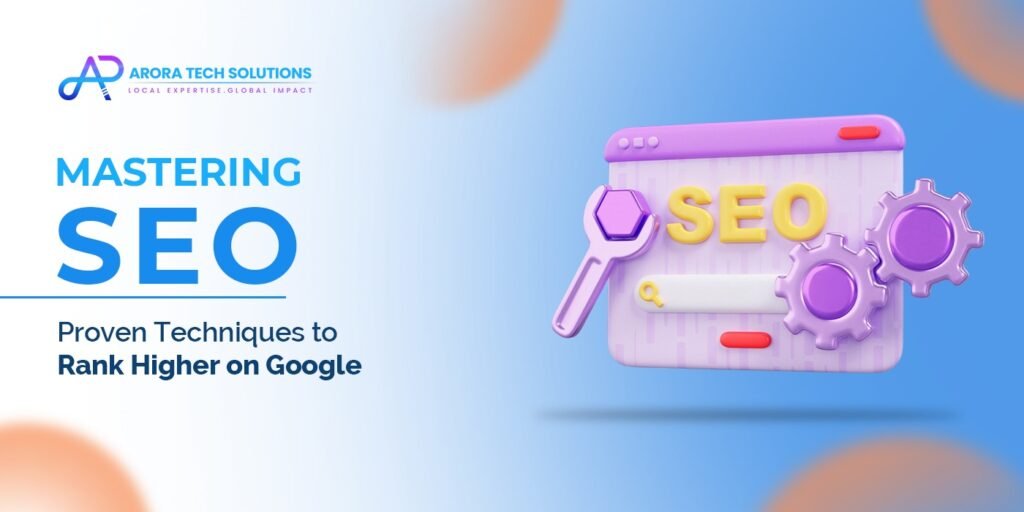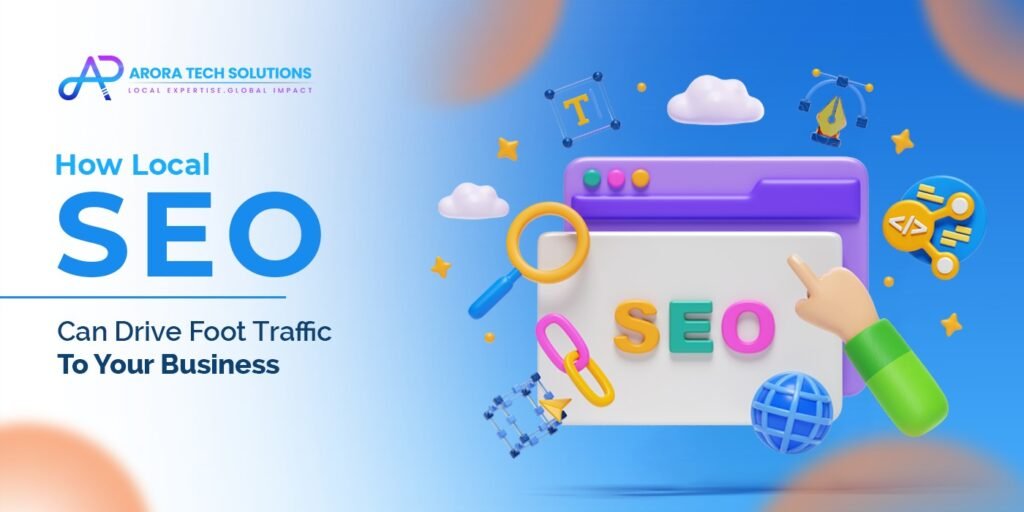On-Page vs Off-Page SEO: What’s the Difference and Why It Matters?
On-Page vs Off-Page SEO: What’s the Difference and Why It Matters?
In the digital world, Search Engine Optimization (SEO) is the key to improving your website’s visibility on search engines like Google. A solid SEO strategy is essential for businesses looking to grow their online presence and drive traffic to their sites. However, not all SEO efforts are the same. SEO can be broadly categorized into two main types: on-page SEO and off-page SEO. While both are crucial, they focus on different aspects of your website and its presence on the internet. Understanding the difference between on-page and off-page SEO is key to developing an effective strategy.
What is On-Page SEO?
On-page SEO refers to all the optimizations you make directly on your website to improve its search engine ranking. These are factors you can control and fine-tune, ensuring your website is not only search engine-friendly but also user-friendly. The goal of on-page SEO is to enhance the content, structure, and usability of your website, making it more appealing to both search engines and users.

Key Elements of On-Page SEO:
- Keyword Optimization
One of the most crucial aspects of on-page SEO is using relevant keywords that your target audience is searching for. By naturally including keywords in important areas like the title tag, meta description, headers, and throughout your content, you help search engines understand what your page is about. - Meta Tags
Title tags and meta descriptions are the first things people see in search results. Crafting engaging and informative title tags that include your target keywords can improve click-through rates. Similarly, writing concise, compelling meta descriptions (the snippets of text under the page title in search results) can encourage users to visit your site. - Content Quality and Relevance
Quality content is the backbone of on-page SEO. Content should be well-written, informative, and relevant to the audience’s search intent. Google rewards pages that provide valuable, in-depth answers to search queries. - Page Speed and Mobile Optimization
Both page speed and mobile optimization are vital for user experience and SEO. A slow-loading website can frustrate visitors and hurt your rankings, while a site that isn’t mobile-friendly may turn away a significant portion of your audience. Ensure your website loads quickly and adapts seamlessly across all devices. - Internal Linking and Site Structure
A well-organized website with a clear internal linking structure allows users to easily navigate through your content. Internal links help spread link equity across your site, making it easier for search engines to crawl and index your pages. - User Experience (UX)
A great user experience keeps visitors on your site longer and reduces bounce rates. Elements like easy navigation, clear CTAs (call-to-actions), and an intuitive design enhance UX, encouraging users to engage with your content and explore your site further.
What is Off-Page SEO?
Off-page SEO, on the other hand, refers to actions taken outside your website to improve its rankings. While on-page SEO deals with optimizing your website, off-page SEO focuses on building the authority, credibility, and trustworthiness of your website through external factors.
Key Elements of Off-Page SEO:
- Backlinks
Backlinks, or inbound links, are one of the most influential off-page SEO factors. When authoritative websites link to your site, search engines view it as a vote of confidence, signaling that your content is valuable and trustworthy. The more quality backlinks you earn, the higher your website is likely to rank. - Social Media Engagement
Although social media signals don’t directly impact search rankings, having an active social media presence can drive traffic to your website and improve brand visibility. Engaging with your audience on platforms like Facebook, Instagram, and Twitter can also help build your brand’s reputation and encourage more website visits. - Brand Mentions and Reputation
Even without direct links, unlinked brand mentions across the web can affect your SEO. When people mention your brand on blogs, forums, or social media platforms, it indicates to search engines that your business is relevant and recognized. These mentions can improve your website’s authority. - Guest Blogging and Influencer Outreach
Guest blogging on reputable websites or collaborating with influencers can help you secure quality backlinks, increase your brand visibility, and drive referral traffic to your site. Both strategies allow you to tap into new audiences and establish your site’s authority in your industry. - Reviews and Local Citations
Online reviews, especially on platforms like Google My Business, Yelp, and industry-specific review sites, play a vital role in off-page SEO. Positive reviews not only boost your brand’s reputation but also improve local SEO, making your website more visible in local search results.
Why Both On-Page and Off-Page SEO Matter
A successful SEO strategy should combine both on-page and off-page efforts. Here’s why:
- Holistic Approach to SEO
On-page SEO ensures your website is optimized for search engines and users. However, off-page SEO helps establish your website as an authority, which is crucial for ranking higher in search engine results. Both aspects work together to strengthen your site’s visibility and trustworthiness. - Search Engine Ranking
Search engines like Google use a variety of ranking factors, and both on-page and off-page signals are considered when determining your site’s position in the search results. While on-page SEO helps Google understand what your page is about, off-page SEO helps Google trust your content and authority. - Building Authority and Credibility
On-page SEO can make your content relevant and accessible, but off-page SEO builds its authority. A website with quality content and high-quality backlinks is more likely to be seen as a trusted source, helping you rank higher and attract more traffic. - Sustained Long-Term Growth
On-page SEO can give you quick wins, but off-page SEO provides long-term benefits. High-quality backlinks and strong social signals don’t just boost your rankings—they also establish your brand as a leading authority in your industry.
Conclusion
Both on-page and off-page SEO are essential for achieving high search engine rankings. On-page SEO ensures that your website is optimized and user-friendly, while off-page SEO focuses on building your site’s authority and reputation. By implementing both strategies, you can create a well-rounded SEO plan that helps drive traffic, improves your website’s visibility, and ultimately supports your business goals. Remember, SEO is an ongoing process—stay updated on the latest trends, and continually optimize both on-page and off-page elements to maintain and improve your rankings.


